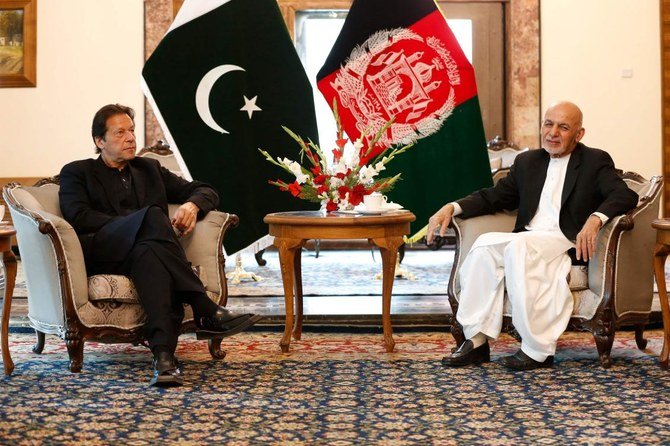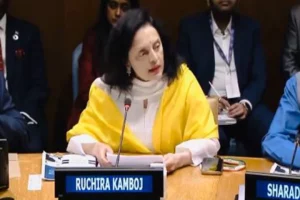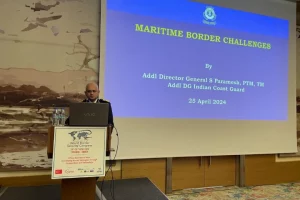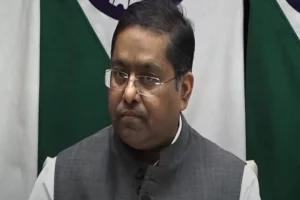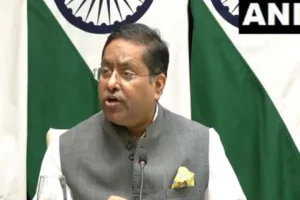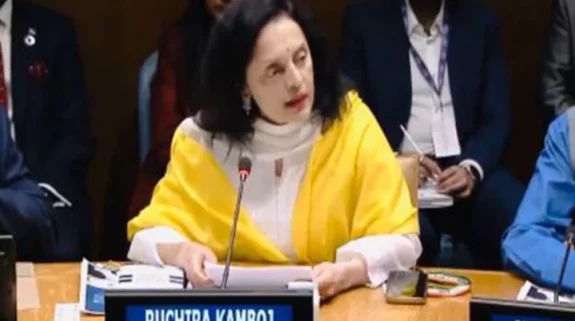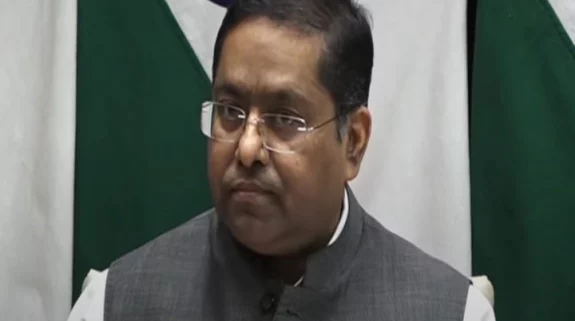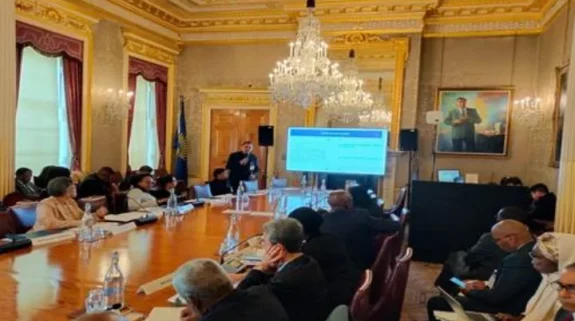An embarrassing irony stared Pakistan in its face when it leveled allegations against India and Afghanistan over their 'support to terrorists' against it, Afghan security forces killed nearly 150 Pakistani terrorists on its border with Pakistan.
This Sunday, the Afghan Interior Affairs Ministry handed to journalists a list of terrorists killed on the Afghan-Pakistan border. Ministry spokesman Tariq Arian said: "152 Pakistani fighters were killed in Helmand province," adding that 65 bodies of Taliban fighters were transferred across the Durand Line into Pakistan.
The Durand Line is the border settled by colonial British and Afghan king Abdur Rahman Khan in Kabul in 1893 to separate Afghanistan from India. After the Partition of India, the Durand Line became the de facto border between Afghanistan and Pakistan. The Afghan spokesperson added that besides the bodies being taken to Pakistan, 35 bodies were taken to Farah province, 54 to Helmand, 13 to Zabul and 13 bodies were taken to Uruzgan province by the terrorists.
Pakistani Foreign Minister Shah Mahmood Qureshi and Director-General of Inter-Services Public Relations (ISPR), Maj Gen Babar Iftikhar, had alleged that India and Afghanistan were supporting terrorists against Pakistan. The allegations come in the week when Pakistani Prime Minister Imran Khan is to make his first visit to Kabul since taking over as the Prime Minister in 2018. He is visiting Afghanistan on the invitation of Afghan President Ashraf Ghani and is slated to meet, besides Ghani, the head of Afghan High Peace Council, Abdullah Abdullah also. Khan also plans to reiterate his support to the intra-Afghan peace process.
Afghanistan is caught in a vortex of violence even as various Afghan groups—the government along with various representatives and the Taliban—are holding face-to-face talks in Doha, Qatar, under American supervision. Called the intra-Afghan talks, the US signed a bilateral agreement with the Taliban on February 29 this year to bring peace to Afghanistan.
Under the agreement, the Taliban was to suspend all violence in Afghanistan, break its relations with al-Qaeda, and sit down with the Afghan government to discuss how to run the country in an all-Afghanistan process. On its part, the US was to withdraw its forces in a phased manner. The Afghan peace talks have all but failed owing to the Taliban not holding its side of the bargain. Violence against civilians and Afghan forces has increased as the Taliban is trying to put pressure on the Ghani government to gain an upper hand in the talks.
On the other hand, the militant group and its supporters still want US troops to keep their part of the promise and withdraw from the war-torn country. In a recent statement, the Taliban expressed its hope that the Joe Biden administration will follow the US-Taliban accord and withdraw American forces. Irrespective of what Pakistan alleges, its role in fomenting terror in Afghanistan is well-documented.
In the middle of this year, the UN Security Council’s (UNSC) analytical support and sanctions monitoring team reported that around 6,500 Pakistani nationals are operating as terrorists along with other foreign militants on Afghanistan soil. The report released in June pointed at the Jaish-e-Mohammed (JeM) and Lashkar-e-Taiba (LeT). The UNSC report also said that the Tehrik-e-Taliban Pakistan (TTP), along with JeM and JeT, operate from eastern Afghanistan and are involved in targeted assassinations of government officials. Two important aspects of the UNSC report were that despite the peace accord with the US in Doha, the Taliban is still “not a credible counter-terrorism partner.”
The second aspect was that the Taliban, contrary to the peace accord has not severed its ties with al-Qaeda. In the aftermath of the release of the UNSC report, Indian spokesperson Anurag Srivastava said the continued presence of a large number of foreign terrorists, including 6,500 Pakistan nationals, “vindicates India’s long-standing position that Pakistan remains the epicentre of international terrorism.” He added that Pakistan has not fulfilled its international obligations under the UNSC resolutions and also under the Financial Action Task Force (FATF) to end support to terrorism. It is not just the UNSC that has pointed out to Pakistan's role in supporting terrorism to destabilize other nations. Pakistan's Heads of States have admitted so.
Current Prime Minister Imran Khan said in New York in September 2019 that Pakistan not only provided shelter to terrorists but also trained them in the name of jihad. Khan said that about 30,000-40,000 terrorists who had trained and fought in Afghanistan and Kashmir were in his country—a forthright admission about the presence of terror groups in Pakistan. He blamed the previous governments for not mustering the political will to act against terrorists inside Pakistan.
He also added that 40 different militant groups were operating in his country. Khan made these comments at various events in New York including at the New York-based think tank Council on foreign Relations (CFR). Soon after Khan's comments in New York, former President General Pervez Musharraf acknowledged that Kashmiris were trained in Pakistan to fight against the Indian Army. He added that terrorist leaders like Osama bin Laden and Jalaluddin Haqqani were considered as Pakistani heroes.
In a video clip, Musharraf says: "Kashmiris who came to Pakistan received hero reception here. We used to train them and support them. We considered them as Mujahideen who will fight with the Indian Army, then various terrorist organizations like Lashkar-e-Taiba rose in this period. They were our heroes." Pakistan finds itself cornered by two resolute nations—India and Afghanistan, both victims of State-sponsored terror from Pakistan. With international pressure mounting though FATF scrutiny and UNSC highlighting its nationals as terrorists, Pakistan just might change color on terror.






